Contents
Mavericks of War
Mavericks of War
The Unconventional, Unorthodox Innovators
and Thinkers, Scholars, and Outsiders Who Mastered
the Art of War
Jason S. Ridler

Guilford, Connecticut
Published by Stackpole Books
An imprint of The Rowman & Littlefield Publishing Group, Inc.
4501 Forbes Blvd., Ste. 200
Lanham, MD 20706
www.rowman.com
Distributed by NATIONAL BOOK NETWORK
800-462-6420
Copyright 2018 Jason Ridler
All rights reserved. No part of this book may be reproduced in any form or by any electronic or mechanical means, including information storage and retrieval systems, without written permission from the publisher, except by a reviewer who may quote passages in a review.
British Library Cataloguing in Publication Information available
Library of Congress Cataloging-in-Publication Data available
ISBN 978-0-8117-1986-5 (hardback)
ISBN 978-0-8117-6776-7 (e-book)
 The paper used in this publication meets the minimum requirements of American National Standard for Information SciencesPermanence of Paper for Printed Library Materials, ANSI/NISO Z39.48-1992.
The paper used in this publication meets the minimum requirements of American National Standard for Information SciencesPermanence of Paper for Printed Library Materials, ANSI/NISO Z39.48-1992.
Printed in the United States of America
To Little-Bit. I remain in your debt.
Acknowledgments
In 2014 I won the Smith Richardson Foundation Fellowship for Foreign Policy and National Security. The research for that project has been modified into Mavericks of War, and thus this monograph could not have been produced without the support of the Smith Richardson Foundation. Id also like to thank some of the many people who directly or indirectly helped or inspired this work to come to fruition: Priya Satia, Edward Said, Kalev Sepp, Thomas Ricks, Rufus Philips, Sean Maloney, Thomas Vincent, Mike Hennessy, David Last, Brian McKercher, Modris Eksteins, Jonathan Vance, Michael Reynolds, Dorothy Fall, Sarah Chayes, Carter Malkasian, and Emma Sky. Id also like to thank the following institutions for their support: Norwich University, who backed my fellowship proposal, Johns Hopkins University, and the Bayview Branch of the Richmond, California, Public Library System, including the invaluable Link+ system in California and Nevada. Thanks to Dave Reisch at Stackpole, my agent Peter Rubie at Fine Print Literary Management for his expert guidance, Janet Reid for her early efforts on the project, and to the gang at The Ark who watched as this book emerged from the Lair. Finally, thanks to Sunny for her love and support.
Note
Small parts of this work originally appeared as part of articles for War on the Rocks and Small Wars and Insurgencies.
Introduction
Leachmans Ghost
The Triumph Leader Museum in central Baghdad was a bizarre and gilded shrine to the avarice, brutality, and ego of President Saddam Hussein. It was filled with whips, Kalashnikovs, and pictures of famous statesmen and women greeting the dictator, from Indira Gandhi to Fidel Castro. It also held a prized possession of the Iraqi dictator, a Brno rifle, almost a century old.
As the United States prepared for the invasion of Iraq in 2003, the rifle was hidden.
Any Decent Servant Would Have Shot Him
August 12, 1920, just outside Fallujah, Mesopotamia.
British colonel Gerard Evelyn Leachman, political officer of the British Mandate in Mesopotamia, met with Sheik Dhari al Mahmud of the Zorba tribe, his sons Khamis and Sulaiman, a retainer, and one of his slaves. It was a period of violent and relentless uncertainty as Western nations decided the fate of peoples who had suffered under the thrall of the Ottoman Empire. Independence and freedom were craved, but the Arabs, Christians, Kurds, Turkmen, and other peoples of Mesopotamia would now be subjects of a British mandate instead of the Sultan. Arabia would be independent and Syria a French imperial holding. Demonstrations and violence followed this declaration of April 20. British air power as much as diplomacy quelled dissent.
Dhari was no fan of the British, but his people were not part of the growing rebellions against their new imperial master. While some mystery remains on the origins of the visit, Leachman took the initiative to help waive loans paid to Dhari for agricultural support. The goal was to reduce tensions between the leadership of Baghdad and Fallujah, and strengthen Dharis support for the British. Local issues were also discussed, including rivals and crime, and according to some sources the dialog became heated. Leachmans style of diplomacy was frank and sharp, every ounce a British officer talking to an colonial underling. Such attributes made him a hero to some.
Leachman was a career imperial soldier. A veteran of South Africa and decorated explorer of Arabia (19091912), he had distinguished himself escaping the siege of Kut before working with the Arabs of Mesopotamia to hold ground against a violent but disintegrating arena of the Ottoman Empire. The Officer Commanding: Desert was a man of action and in perpetual motion. He worked among the tribes and people he had studied before the war, dressed in Arab fashion, and excelled in intelligence gathering and commanding his men with a fierce temper. Tough, resilient, and cunning, Lijman, as the Bedouin called him, was seen as one of the foremost soldiers of the Middle East theater.
Outside of Fallujah, Leachman turned and left Dharis building.
A Brno rifle fired.
Leachman was shot in the back and killed by one of the sheiks sons. Outrage against the mandate and the fury at Leachmans murder unleashed another revolt, this time Arab against the British. Brutal repressions and diplomatic machinations led to the establishment of Prince Feisal, son of the Sharif of Mecca and leader of the first Arab Revolt as the king of the newly created Kingdom of Iraq (see
In death, Leachman was championed by many imperialists as a soldier whose knowledge and appreciation of the Arabs was instrumental in the protection of British interest during and after the war. He was praised for his ability to live among the Bedouins in their garb and among their traditions as a means to gather information, and for his ability to command and lead foreign soldiers. One reason may be that Leachman was far less worthy of praise than at first blush.
Leachman wasnt quite what you call a decent fellow, noted T. E. Lawrence to a friend after Leachmans death. Dont make him a hero in your book. He was too shrill, too hot-tempered, too little generous.
Eventually, one did.

The Brno rifle that killed Leachman had been given to Hussein by a descendent of Dhari shortly before the U.S. invasion of 2003. It was hidden in the prelude to the shock and awe campaign, and has yet to be recovered. But the air campaign that crippled a regime, the brutality of Abu Ghraib, the bullying nature and reliance on power instead of diplomacy that characterized the U.S. invasion of Iraq would have made the ghost of Leachman proud.
Leachmans example, however, is a strange paradox compared to his contemporary. Lawrence is the more famous and celebrated (for good and ill, as we shall see). Leachman is almost forgotten. Yet Leachmans attitudes, methods, and conduct as an imperial soldier fighting in foreign wars have been more common than not as Western nations find themselves in wars across the globe. Leachmans lack of empathy was matched by cultural knowledge that had little respect for the Arabs whom he worked with. The same could not be said of Lawrence, who earned respect and admiration for his conduct, but also his appreciation of a complex peoples culture, religion, traditions, and practices. It would seem that for every dozens of Leachmans, there are very few Lawrences. So, after a fashion, Leachmans most celebratory biographer was right. To this day many think that he still lives. Alongside the ghost of Leachman, however, is an invisible path that ran counter to his legacy of brutality and ignorance in foreign lands. These footsteps begin with Lawrence.

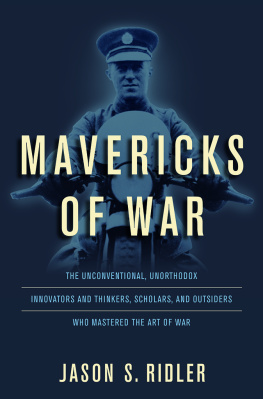

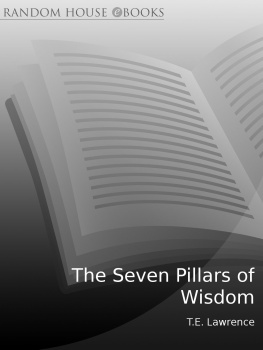
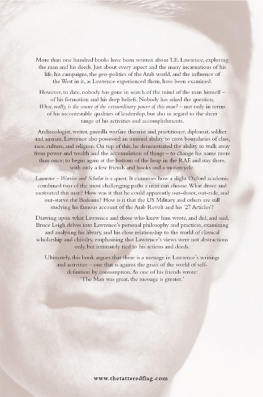
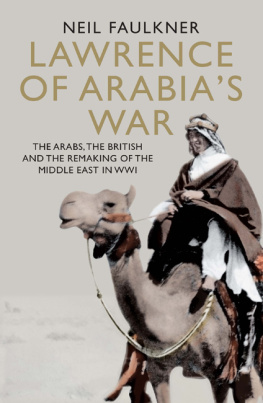
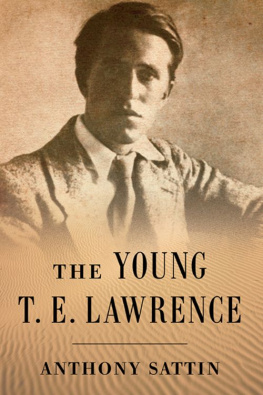



 The paper used in this publication meets the minimum requirements of American National Standard for Information SciencesPermanence of Paper for Printed Library Materials, ANSI/NISO Z39.48-1992.
The paper used in this publication meets the minimum requirements of American National Standard for Information SciencesPermanence of Paper for Printed Library Materials, ANSI/NISO Z39.48-1992.